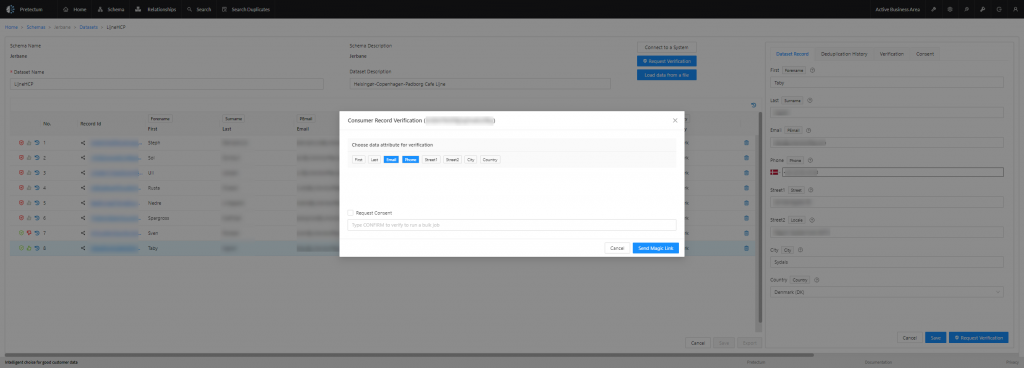Customer experience (CX) has long been a battleground for businesses across industries. With globalization and telecommunications infrastructure, products and many kinds of non-in-person services are becoming increasingly commoditized; so, how a company treats its customers, their allegiance to the brand, and how it makes them feel is a big differentiator. Industry statistics paint a clarifying picture.

At its core, customer experience encompasses every interaction a customer has with a given brand, from initial awareness through the purchase process and ongoing support. It’s about understanding customer needs and expectations, and then consistently meeting or exceeding them at every touch-point.
investing in customer experience drives loyalty, increases revenue, and gives companies a competitive edge.
Companies excelling at CX can create emotional connections with customers, turning them into loyal advocates.
Research shows just how impactful CX has become. According to PwC, 73% of consumers say customer experience is an important factor in their purchasing decisions. And they’re willing to pay more for great experiences – up to a 16% price premium on average.

For luxury and indulgence services, that premium rises to 13-18%. Customers place tremendous value on positive interactions with brands.
But the stakes are high. While great experiences drive loyalty, poor ones can be devastating. One-third of customers say they’ll walk away from a brand they love after just one bad experience. After two or three negative interactions, that number jumps to 92%.
In today’s competitive landscape, brands simply can’t afford to deliver subpar experiences. The financial impact of CX is staggering. Temkin Group found that companies earning $1 billion annually can expect to earn an additional $700 million within 3 years of investing in customer experience. For SaaS companies, that figure rises to $1 billion. Improved retention rates are a key driver – increasing customer retention by just 5% can boost profits by 25% or more. So what exactly do customers want from their experiences?
Above all, they crave personalization. 63% of consumers expect personalization as a standard of service. They want brands to understand their unique needs and preferences, then tailor interactions accordingly. 74% are even willing to share personal data in exchange for more personalized experiences.
Speed and convenience are also critical. Customers have little patience for long wait times or complex processes. 75% of consumers say fast response times are the most important element of a positive customer experience. And 67% prefer self-service over speaking to a company representative. Brands need to empower customers to quickly and easily find information and resolve issues on their own.

Consistency across channels is another key expectation. With customers interacting via websites, mobile apps, social media, phone, and in-store, 76% expect consistent experiences regardless of the channel. Yet only 54% say it feels like sales, service, and marketing teams share information. Creating a unified view of the customer and breaking down internal silos is crucial.
The rise of social media and messaging apps has dramatically changed how customers want to interact with brands. By 2025, Gartner predicts 80% of customer service organizations will have abandoned native mobile apps in favor of messaging for a better customer experience.
Social media has become a key customer service channel, with 54% of customers preferring it for care. Mobile experiences in particular have become make-or-break. With 59% of global internet traffic now coming from mobile devices, delivering seamless mobile interactions is no longer optional.
Slow load times, poor navigation, or lack of mobile optimization can quickly drive customers away.
Data and technology play a crucial role in delivering great experiences at scale. AI and machine learning enable companies to analyze vast amounts of customer data to uncover insights and predict needs. Chat-bots and virtual assistants can provide 24/7 support. And technologies like conversation intelligence software help companies understand customer sentiment and optimize interactions.

The conversation intelligence software market is booming, expected to reach $32 billion by 2028. This technology captures and analyzes conversations across channels, providing valuable insights into call center performance, agent effectiveness, and customer sentiment. Companies can then use these insights to personalize interactions and improve experiences.
As companies collect more customer information, data privacy has become a major concern. 93% of Americans say controlling access to their personal information is crucial. Brands must be transparent about data collection and usage while implementing robust security measures. While technology enables better experiences, the human element remains critical. Empathy, active listening, and emotional intelligence are key skills for front-line employees. 82% of U.S. consumers want more human interaction in their customer experiences.

Balancing automation with human touch is the sweet spot.
Looking ahead, customer experience will only grow in importance. By 2024, Gartner predicts that 89% of companies will compete primarily based on customer experience. It has become the key battleground for winning and retaining customers.
Yet despite its importance, many companies still struggle to deliver great experiences consistently. Nearly half of businesses (48%) admit that their customer experience falls below customer expectations. Only 31.5% believe they exceed expectations.
There’s still work to be done. Companies that will thrive are those that truly put customers at the center of everything they do. This requires buy-in from leadership, breaking down organizational silos, empowering employees, leveraging data and technology, and constantly gathering and acting on customer feedback.
This also requires a shift in mindset – viewing customer experience not as a cost center, but as a growth driver and competitive differentiator. The statistics make it clear that investing in CX pays off in increased loyalty, higher revenue, and long-term success.
As we move further into the experience economy, the ability to consistently deliver positive, memorable customer experiences will separate the leaders from the laggards. By understanding customer needs and expectations, leveraging technology thoughtfully, and maintaining a relentless focus on the customer, companies can create experiences that drive loyalty and growth for years to come.
Pretectum CMDM can help organizations set a strategic focus on creating memorable and personalized customer experiences at every touch-point. By leveraging CMDM, businesses can gain access to insights into customer preferences, behaviors, and pain points, allowing them to tailor their products, services, and marketing strategies to meet individual customer needs. This then leads to enhanced customer satisfaction, loyalty, and advocacy, ultimately driving business growth.
Contact us to learn more about how Pretectum CMDM can help.

